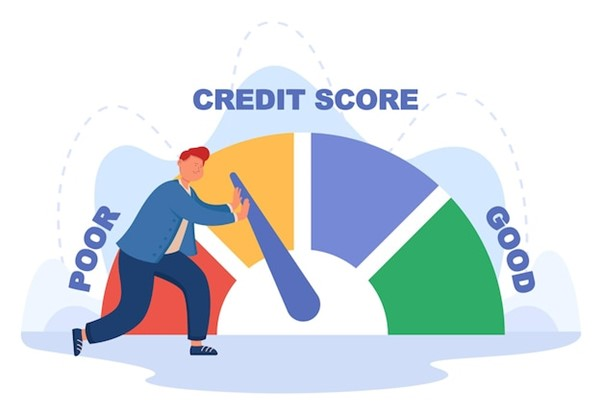When life throws unexpected challenges, they can often leave a mark on our financial histories. If you have faced monetary issues in the past, leading to adverse credit, you might assume that becoming a homeowner is beyond reach.
However, an adverse credit mortgage could offer a solution.

What is an Adverse Credit Mortgage?
Adverse credit mortgages, sometimes referred to as “bad credit mortgages” or “sub-prime mortgages”, are designed specifically for individuals who have faced financial difficulties and as a result, have a less-than-perfect credit score. These mortgages consider the broader financial picture rather than outright declining applications based on past credit mishaps.
Why Consider an Adverse Credit Mortgage?
1. Second Chance: Everyone deserves a chance to recover and rebuild. This type of mortgage offers an opportunity for those who might be declined by mainstream lenders.
2. Flexible Criteria: They’re specifically tailored, considering circumstances and reasons behind financial missteps, rather than only numerical credit scores.
3. Step to Recovery: Demonstrating that you can responsibly manage a mortgage can contribute positively to repairing your credit history.
Common Causes of Adverse Credit
-
- Missed bill payments or loan instalments
-
- County Court Judgments (CCJs)
-
- Individual Voluntary Arrangements (IVAs)
-
- Bankruptcy declarations
-
- Defaults on previous loans or credit cards
Here are the primary factors adverse mortgage lenders consider when assessing applications:
1. Credit Score
While designed for those with less-than-perfect credit, lenders still review credit scores to determine the degree of risk.
2. Severity of Adverse Credit
-
- Missed Payments: One or two missed payments may not heavily influence the decision, but frequent misses can.
-
- Defaults: These are serious and remain on the credit file for six years.
-
- CCJs (County Court Judgments): They indicate unresolved debts and can significantly affect your mortgage prospects.
-
- Bankruptcy: A severe form of adverse credit. Most lenders require it to be discharged for a certain period before considering a mortgage.
-
- IVAs (Individual Voluntary Arrangements): A step before bankruptcy, it indicates a formal agreement to pay back creditors over time.
3. Recentness of the Adverse Credit Event
Lenders often prioritize recent credit behavior over older events. A missed payment from five years ago is generally less concerning than one from five months ago.
Lenders usually break it down into incidents
-
- Within a year
-
- Within the last 3 years
-
- WIthin the last 6 years
After 6 years the events will go off your credit search but you will still need to disclose them if asked, especially if they have not been cleared such as unpaid CCJ’s
4. Deposit Size
A larger deposit can sometimes offset the risk associated with adverse credit, making lenders more amenable.
5. Debt-to-Income Ratio
This measures your monthly debt obligations against your income. Lenders use it to gauge if you can afford additional monthly mortgage payments.
6. Employment Status and Income
Stable employment and a consistent income can reassure lenders of your ability to meet mortgage repayments.
7. Type of Property
Some lenders may be wary if the property is deemed “non-standard”, such as a high-rise flat or a property with an unconventional structure.
8. Loan-to-Value (LTV) Ratio
Represents the percentage of the property’s value you’re looking to borrow. A lower LTV (meaning a bigger deposit) can be more appealing to lenders.
9. Presence of a Guarantor
Some adverse credit mortgages allow for a guarantor, which can increase the chances of approval as the guarantor agrees to cover payments if you can’t.
10. Mortgage Type
Whether you’re seeking a fixed-rate, variable, or another type of mortgage can influence a lender’s decision.
Top Tips for Navigating the Adverse Credit Mortgage Landscape
-
- Understand Your Credit Score: Before applying, obtain a copy of your credit report. This gives clarity on where you stand and what lenders might flag.n
-
- Save for a Larger Deposit: A substantial deposit reduces the risk for the lender, possibly unlocking better rates and terms for you.n
-
- Consult a Specialist Broker: Mainstream banks might not cater to adverse credit situations, but specialist brokers, with extensive market knowledge, can guide you to suitable lenders.n
-
- Be Honest and Transparent: When discussing your financial history, be open about past difficulties. Lenders appreciate transparency and it aids in finding the best solution for your scenario.n
-
- Consider a Guarantor: A trusted friend or family member with good credit can act as a safety net, reassuring lenders.
The Role of Professional Guidance
At Compton Financial Services, we focus on offering bespoke mortgage and protection solutions. As a Chartered Financial Advisor and a portfolio landlord, I’ve both professionally and personally navigated complex financial waters. Our aim is to simplify, clarify, and assist, especially in nuanced areas like adverse credit mortgages.
Conclusion
Adverse credit doesn’t mean the end of your property-owning dreams. While the path might be slightly more intricate, with informed decisions and the right support, it’s entirely possible to find a mortgage tailored to your unique situation. Remember, past financial difficulties don’t define your entire financial story.
Embrace the opportunity to turn the page and start a new chapter, with an adverse credit mortgage as a viable route to homeownership in the UK.
Should you need advice or assistance, know that Compton Financial Services is here, drawing from two decades of personal mortgage and professional experience, ready to guide you through.
Your home is at risk if you fail to keep up payments on your mortgage or any other loans secured against it.
Buy to Let mortgages are not usually regulated by the Financial Conduct Authority.
Compton Financial Services Ltd is an Appointed Representative of New Leaf Distribution Ltd. who are authorised and regulated by the Financial Conduct Authority. Number 460421. Head Office 165 – 167 High Street, Rayleigh, Essex SS6 7QA. Co registration Number 5520001.
